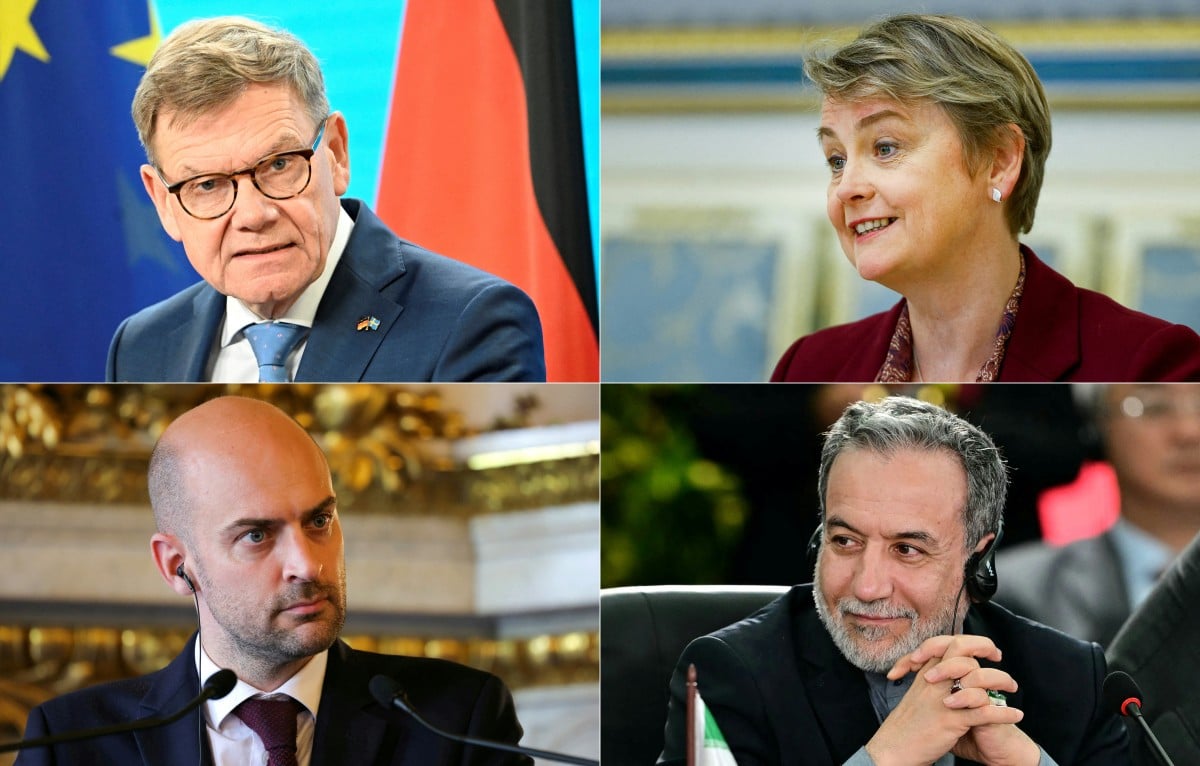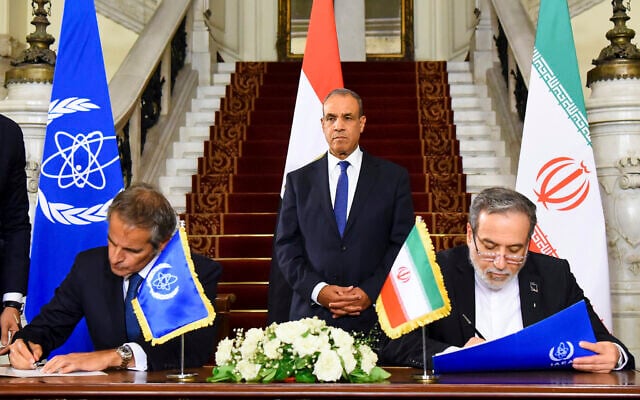


Iran’s top security body said Saturday that action by Britain, France and Germany to reimpose UN sanctions will “effectively suspend” its cooperation with the UN nuclear watchdog.
“Despite the foreign ministry’s cooperation with the (International Atomic Energy) Agency and the presentation of plans to resolve the issue, the actions of European countries will effectively suspend the path of cooperation with the agency,” the Supreme National Security Council said in a televised statement.
The announcement comes after the Security Council voted on Friday to reimpose frozen UN sanctions after the European governments activated the “snapback” mechanism in a decade-old nuclear agreement, accusing Iran of non-compliance.
The vote means that the sanctions, which were suspended in return for curbs on Iran’s nuclear activities set out in the 2015 deal, will take renewed effect on September 28 unless Iran can persuade the council to relent in the next week.
Tehran said the action by the European powers undermined months of engagement with the IAEA aimed at resuming monitoring and ensuring compliance with international rules.
Earlier this month, Iran and the IAEA reached an agreement in Cairo that would have allowed inspections of Iranian nuclear sites to resume.

Iran had suspended them after Israel and then the United States attacked its nuclear facilities in June in a sweeping assault on Iran’s top military leaders, nuclear scientists, uranium enrichment sites, and ballistic missile program Israel said was necessary to prevent the Islamic Republic from realizing its avowed plan to destroy the Jewish state.
Tehran has criticized the IAEA for failing to condemn the Israeli and US strikes.
The European governments have said they will not delay the reimposition of UN sanctions unless Iran resumes full cooperation with the IAEA and reopens nuclear talks with the United States, which have been suspended since June.
Iran has consistently denied seeking to acquire nuclear weapons. However, it enriched uranium to levels that have no peaceful application, obstructed international inspectors from checking its nuclear facilities, and expanded its ballistic missile capabilities. Israel said Iran had recently taken steps toward weaponization.
Iran retaliated to Israel’s strikes by launching over 500 ballistic missiles and around 1,100 drones at Israel. The attacks killed 31 people and wounded over 3,000 in Israel, according to health officials and hospitals. In all, there were 36 missile impacts and one drone strike in populated areas, causing damage to 2,305 homes in 240 buildings, along with two universities and a hospital, and leaving over 13,000 Israelis displaced.

